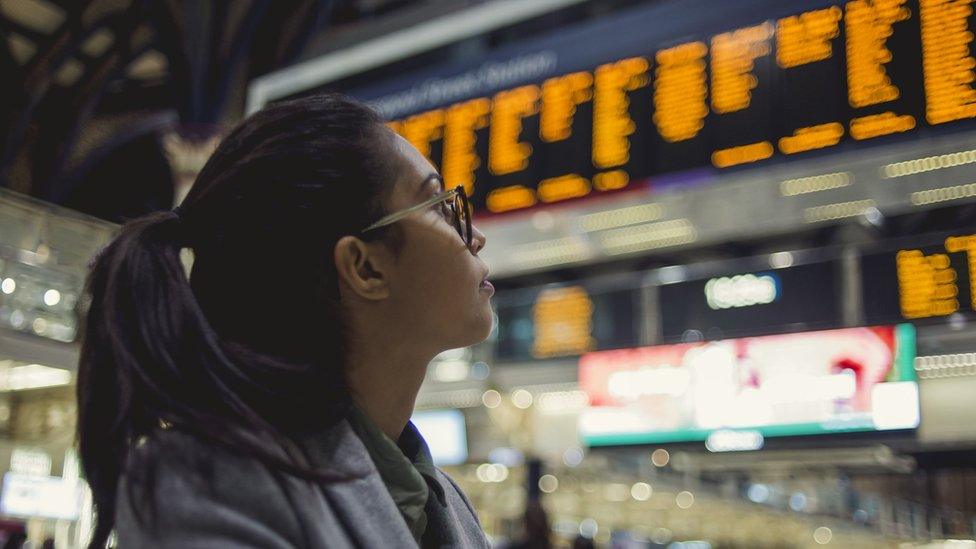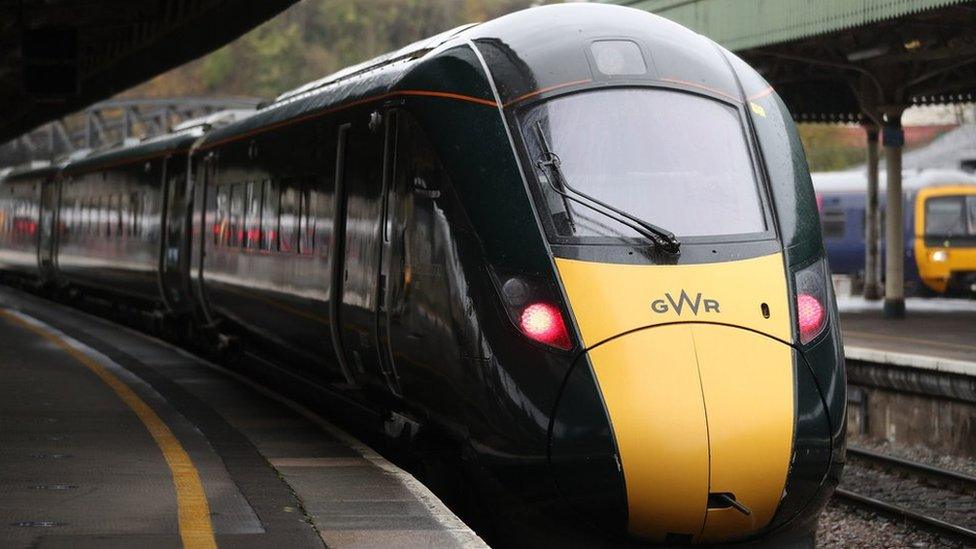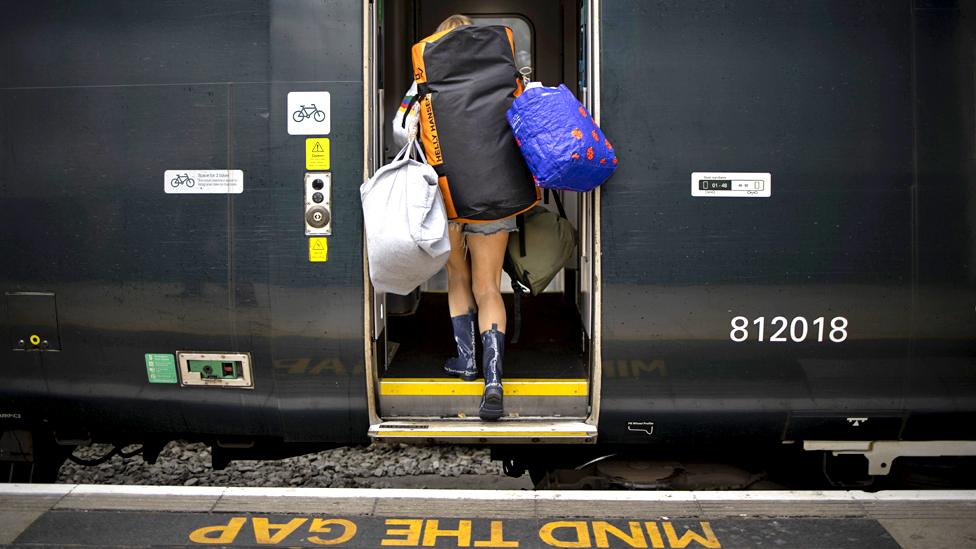Rail strikes: Passengers urged not to travel during walkout
- Published
- comments

People are being asked only to travel by train if necessary on Saturday as services will be significantly disrupted by rail strikes.
Network Rail said just one in 10 services would run, with some areas having no trains, as a result.
There will be more disruption than during previous strike days as members of four unions stage a co-ordinated strike for the first time.
The strike is part of a long-running dispute over pay, jobs and conditions.
More than 54,000 rail workers who are members of the RMT, Aslef, Unite and Transport Salaried Staffs' Association (TSSA) unions will join the picket.
Trains will start later in the morning and finish earlier in the evening on Saturday.
A reduced timetable has been published, external, showing just 11% of rail services would run. Some disruption will be likely to continue into the early morning of Sunday while workers return to duties.
Unlike previous strike days, there will be no trains between London and a number of other major UK cities - including Edinburgh, Birmingham, Manchester, Liverpool, Newcastle, Brighton and Norwich.
Passengers who must travel are being advised to plan ahead and check when their last train will depart.
"Despite our best efforts to compromise and find a breakthrough in talks, rail unions remain intent on continuing and co-ordinating their strike action," Network Rail boss Andrew Haines said.
"This serves only to ensure our staff forgo even more of their pay unnecessarily, as well as causing even more disruption for our passengers and further damaging the railway's recovery from the pandemic."
Union leaders have said their members face no choice but to continue the industrial action. When the latest strike dates were announced last week, Aslef's general secretary Mick Whelan said it was "outrageous" that members were expected "to put up with a real terms pay cut for a third year in a row".
The TSSA's general secretary Manuel Cortes added: "We do not take this action lightly. We would much rather find a fair negotiated solution to this now long-running dispute, but we simply have no choice."


This is the biggest yet in the series of train strikes.
Members of multiple rail unions walking out on the same day means fewer trains running than previous walkouts.
Some operators, including Southeastern and Avanti West Coast, will run no services at all on Saturday.
Since the last strikes in August, little or no progress appears to have been made towards a breakthrough in negotiations.
Network Rail is still urging the RMT to put its latest offer to members in a vote.
Broadly speaking, the unions' argument is that employees badly need a pay rise to address high inflation. And they say neither working conditions, nor job security, should be sacrificed.
But the rail industry is under pressure to save money following the financial hit from the pandemic - when the government effectively took control of the railway and billions of pounds of taxpayers' money was poured in to keep services running.
The government and industry say efficiencies must be made, and working practices modernised, to plug the gap and afford a pay increase.

The walkout comes ahead of two more strike days planned for October.
Services will be affected on Wednesday 5 October, when train drivers in the Aslef union walk out, and Saturday 8 October, due to industrial action involving rail workers including signallers who are in the RMT.
Passengers hoping to travel on any of the upcoming strike days are asked "only to do so if absolutely necessary", Mr Haines said.
The Rail Delivery Group, representing train companies, called the strikes "unnecessary and damaging" as they would disrupt people's plans, affect businesses and impact major events.
Delegates travelling to the Conservative Party conference and participants in the London Marathon will be among those affected by the disruption this weekend.
RMT general secretary Mick Lynch recently met with new Transport Secretary Anne-Marie Trevelyan to discuss the dispute.
He said he asked her to try and "unthaw" the situation, saying: "We need to get the thing out of deep freeze and get it on the table so we can work through the problem."
Mr Lynch said at the weekend that Ms Trevelyan agreeing to talks was "a good start" as her predecessor Grant Shapps had repeatedly refused to meet the unions. But he added with no new offer being tabled, his members had no choice but to continue with strike action.
Related topics
- Published27 September 2022

- Published22 September 2022

- Published9 May 2024

- Published24 June 2022
